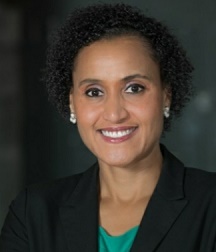Honorable Alison Hatheway
Hamilton County Courthouse
1000 Main Street
Room 300
Cincinnati, Ohio 45202
Tara Eggleston, Bailiff
Phone Number: 513-946-5760
Isabelle Weber, Staff Attorney
HathewayLawClerk@cms.hamilton-co.org
Phone Number: 513-946-5759
Fax Number: 513-946-5757
** ALL CASE MANAGEMENT CONFERENCES (CMC), STATUS CONFERENCES, AND CASE REPORTS, WILL BE HELD VIA TELEPHONE CONFERENCE. PLEASE CONTACT OPPOSING COUNSEL PRIOR TO THE CMC AND INITIATE A CONFERENCE CALL -- THEN CALL THE COURT **
Courtroom Procedures
Motion Practice
To set a hearing on a civil case, a request must be submitted in writing and a hearing scheduled with the staff attorney. To set a hearing on a criminal case, a request must be made in writing and a hearing scheduled with the bailiff. A file stamped courtesy copy of any motion should be provided to the Court in advance of the hearing.
Criminal motions are heard in the morning, and civil motions are heard in the afternoon. The timelines for responses to and replies in support of motions will follow those imposed by the Ohio Rules of Civil Procedure and any applicable local rule. Motion hearing exhibits must be provided to the opposing party and the Court. To request the status of a pending motion or to alert the court of an urgent request, counsel should contact either the bailiff (criminal cases) or the staff attorney (civil cases).
Settlement
Regarding civil matters, attorneys are encouraged to reach resolutions on their own, however, parties are encouraged to contact the Court if they believe that intervention would aid the parties in reaching a settlement agreement.
Pretrial
This Court uses a standard case management form. The form provides attorneys with a discovery deadline, deadlines for identification of experts, dispositive motion deadlines, and pretrial and trial dates which should be adhered to. During the initial case management conference, a pretrial conference will be set approximately two weeks prior to trial. Pretrial statements are due at least one week before the pretrial conference and should follow the format in the Local Rules. Representatives for each party must be present at the final pretrial with full, final, and immediate settlement authority. Motions in limine should be filed before the pretrial. All exhibits, marked with exhibit numbers/letters, should be submitted to the Court at least three business days before the trial.
Trial
Criminal trials are generally set at 10am and continue until approximately 4pm, with a one-hour lunch and occasional recesses. Civil trials are generally set at 11am, or after the conclusion of the criminal docket. Civil jury instructions in a complete form should be submitted by e-mail to the staff attorney three days before trial. A witness list must be provided to both the Court and the court reporter before trial. Trial briefs are welcome but are not required. There is no time limit for voir dire, but counsel is expected to keep voir dire succinct.
Sentencing
Sentencing Memorandums in criminal matters should be filed with the Court no later than two business days before the sentencing hearing. A copy should also be provided to opposing counsel prior to the sentencing hearing.
Discovery
Discovery time limits are set at the initial case management conference. The Court expects opposing parties to be courteous and respectful regarding discovery. If a discovery dispute arises, parties must attempt to work it out before seeking Court involvement. In criminal cases, there is a duty to provide discovery to the defendant, including but not limited to, mitigating and exculpatory evidence. Possession of such evidence by law enforcement is imputed to the state. In civil cases, prior to any party filing a Motion to Compel Discovery, parties must first reach out to the Court to schedule a Discovery Conference.
Courtroom Etiquette and Expectations
Counsel and parties are expected to be professional, respectful, and courteous. Counsel is expected to act with civility toward each other, the parties, witnesses, staff and the general public. When speaking during a hearing or trial, counsel should stand, either at the podium or at their table. Counsel should ask permission before approaching a witness or the bench, but consider such permission continuing after the first request unless otherwise directed from the bench. Counsel is expected to be on time, however, if counsel is delayed or late, they should contact the Court.

